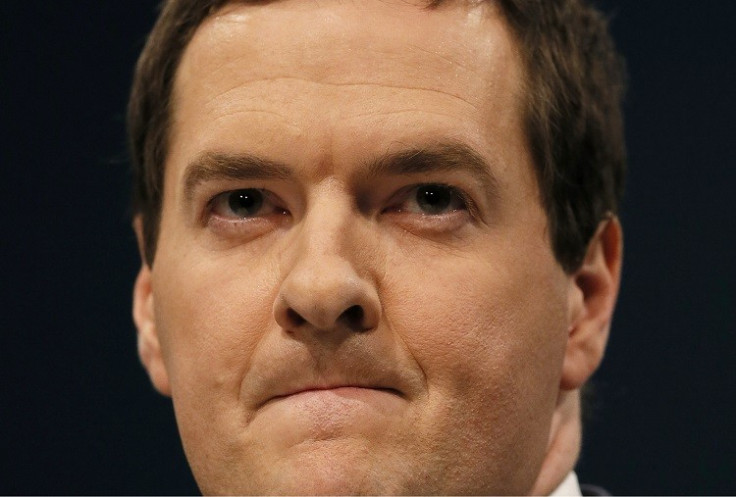Tories Risk Losing 2015 General Election Unless UK Wages Grow

What's the value in an economic recovery that not everyone can share in?
It is on the battleground of this question that the UK's next general election will be fought.
This is because impressive headline GDP numbers are meaningless to the working person on the street unless there are notes in their wallet and pound coins in their pocket.
The Conservatives have two central problems. The first is maintaining the pace of the current recovery and the second is ensuring it filters down to ordinary people. Both of these rely on wages picking up.
According to the Office for Budget Responsibility (OBR), wages will not rise meaningfully until 2015. By which time it will be too late for the Tories.
For them to win a majority at the next election, however narrow, then they need wages to reverse their real terms decline much sooner than the OBR predicts.
Whatever the rights or wrongs of Chancellor George Osborne's austerity programme, Labour's "too far, too fast" attack dagger on spending cuts has been blunted by the emerging recovery.
This is compounded by a study from the Centre for Economics and Business Research (CEBR) which shows the UK will be the fastest growing western economy as we enter 2014.
Cost of living narrative
The Labour Party must, and has under its "cost of living crisis" narrative, shift the focus on to consumers' paltry incomes where its case against the government retains a sharp edge.
And the Tories have to shield themselves against this, because it isn't just the election that hinges on the wages question, but also the entire recovery.
Our bounceback from the post-financial crisis slump has not been, as Osborne originally hoped, off the back of rising trade with emerging markets. It has been powered by household spending and rising house prices.
If Osborne wants his recovery to not only sustain its momentum, but to accelerate quicker than it is predicted to, he needs to support consumers' incomes so they can carry on spending.
The forecasters have been wrong before and, at considerable risk, he may choose to gamble that they're wrong again on when wages will rise. But Osborne should instead be prudent and take action in his 2014 Budget.
He could bring forward and extend plans to raise the personal allowance, the threshold at which workers pay income tax. As it stands, the personal allowance will rise to £10,000 in April 2015, just before the next election.
It would be a better idea to bring that forward to 2014, so workers can feel the benefit well ahead of the polls. Perhaps even to lift it higher, so they are better off than anyone expected.
Or he could cut VAT back to 17.5%, giving consumers money back on their purchases. Then there's forcing business to pass on the spoils of the recovery to their employees by hiking the National Minimum Wage.
Even John Cridland, head of Britain's biggest business lobbyist the Confederation of British Industry (CBI), has urged firms to pay staff more in 2014.
Whatever way he chooses to do it – higher wages, lower taxes, welfare payments – Osborne must support workers' incomes if the Tories are to have a convincing recovery message at the election.
Of course there will be Tories who are squeamish about spending more money, even on making work pay more, urging Osborne to maintain the "fiscal neutrality" to which he has been wedded.
But that assumes he is not able to shuffle the Treasury's finances around in such a way as to make it fiscally neutral, or at least give the appearance of it through the accounting trickery for which Osborne has become too well known.
It also makes the fatal assumption that most people give a toss about fiscally neutral budgets, which they do not.
Yes Osborne would be breaking one of his own rules, but this is not politically destructive at a general election.
What is destructive is to have an electorate who are told they are surrounded by a golden economic recovery, but who can't see anything but dust mites and cobwebs in their own bank accounts.
Shane Croucher is a senior business journalist at IBTimes UK.
© Copyright IBTimes 2024. All rights reserved.






